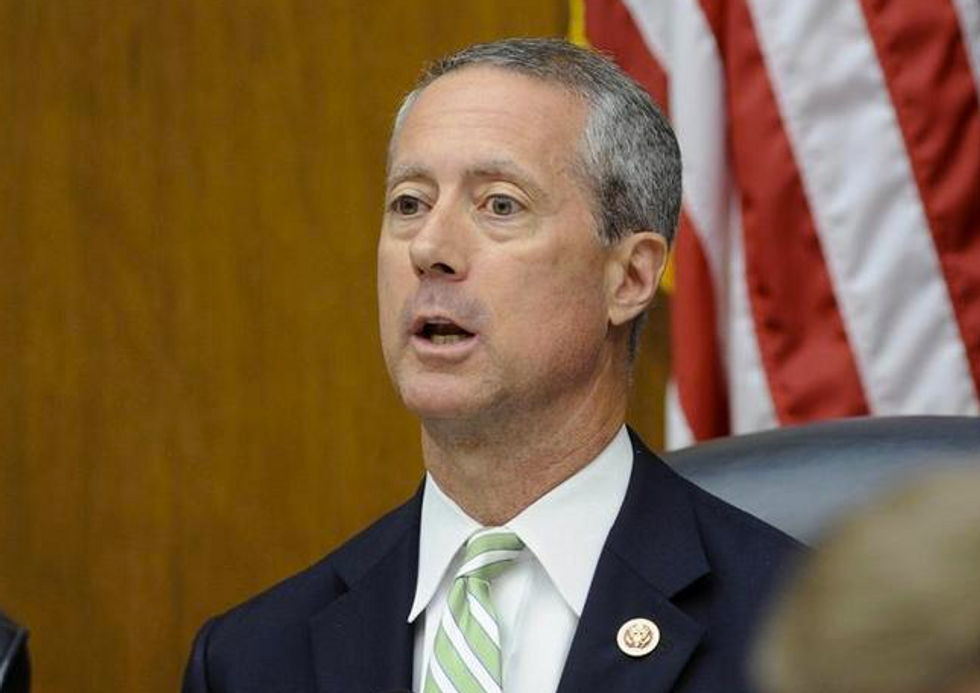
© 2025 Blaze Media LLC. All rights reserved.
The top Republican on the House Armed Services Committee said Tuesday that one his goals for the year is to find some way around the sequester, the forced spending cuts agreed to a few years ago that he says have devastated the U.S. military.
In a speech to the American Enterprise Institute, Rep. Mac Thornberry (R-Texas) said sequester cuts have led to a 21 percent reduction in the base Defense Department budget compared to 2010, in real terms. And while he said he didn't have a plan yet to repeal those cuts going forward, he said he would support almost any plan that could pass Congress.

Image: AP Photo/Susan Walsh
"It has to be fixed," he said. "That fix has got to pass the House of Representatives, it's got to pass the Senate, and it's got to be signed into law by the president."
"Whatever can pass the House and pass the Senate and get signed into law by the president, I think I'm for," he added.
According to the Defense Department, the sequester called for cuts to its base budget of more than $50 billion in both 2013 and 2014. Those cuts were ultimately reduced to just over $30 billion each in those years, thanks to the passage of other laws to tweak the cuts and the ability of Defense to draw from unused funds in other accounts.
Those cuts are between 5 and 10 percent of Defense's latest budget, and Thornberry said they have made it difficult for the U.S. military to keep its equipment upgraded, and keep U.S. servicemen and women to keep up on their training.
"It's about whether we have the capability to do what the nation needs and the times demand," he said. "It's also very much about the increased danger that comes to our people from diminished training, aging equipment, and a tempo of operation that stretches them and their families just too far."
Last year, Defense warned in a report on the sequester that failing to shore up funding would make it difficult to fight more than one war at a time.
"[U]nder sequester-level budgets, we would be gambling that our military will not be required to respond to multiple major contingencies at the same time," officials said at the time.
Ending the sequester for just the military would likely prove difficult, as it would prompt Democrats to push for other spending cuts on social programs. Failure to do that could lead to Democratic opposition in the Senate and stall legislation there that only deals with the military.
The broad cuts to discretionary spending known as the sequester were put in place in 2013, after Congress and the White House failed to reach a deal on more selective cuts in an effort to reduce the budget deficit.
The sequester has essentially frozen discretionary spending in the government, and has contributed to the falling budget deficit for the last few years.
Want to leave a tip?
We answer to you. Help keep our content free of advertisers and big tech censorship by leaving a tip today.
Want to join the conversation?
Already a subscriber?
more stories
Sign up for the Blaze newsletter
By signing up, you agree to our Privacy Policy and Terms of Use, and agree to receive content that may sometimes include advertisements. You may opt out at any time.
Related Content
© 2025 Blaze Media LLC. All rights reserved.
Get the stories that matter most delivered directly to your inbox.
By signing up, you agree to our Privacy Policy and Terms of Use, and agree to receive content that may sometimes include advertisements. You may opt out at any time.





